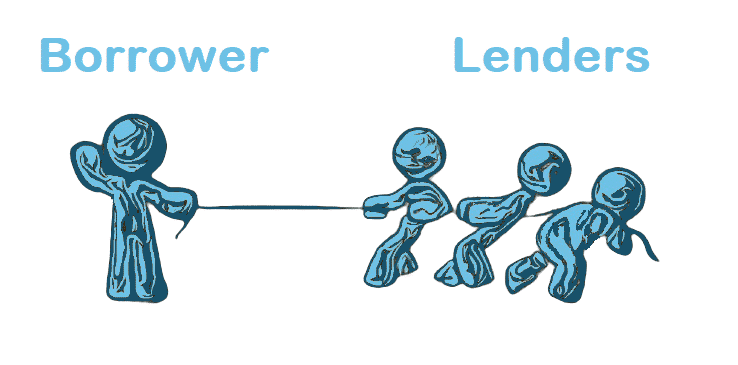Looking to sell your property fast but not sure who to trust? Complete our contact form
The Ultimate Guide:
The threat of our homes being repossessed is one of the scariest things that can happen to us.
When faced with a possession order, many people tragically make things worse by burying their heads in the sand.
We’re here to tell you that help is at hand.
This guide will provide you with an abundant list of useful, actionable solutions and safeguard you against things that can cause more harm than good.
No need to panic or to feel overwhelmed. Many people have gone through this unfortunate situation and have come out on top.
You are in the right hands and we’ll do our best to help you during this difficult period of your life, so let’s dive in.
Want to hear why we recommend My Homebuyers above everyone else?
We have independently investigated all the best cash home buyers in the UK.
We ranked them based on their cash offers, reliability, customer service and 15 more metrics.
And we discovered that ‘My Homebuyers’ are superior in every regard to all other companies.
My Homebuyers will give you the best genuine cash offer, without contracts and without any fees.
While other companies will try to lock you into a contract which is rarely in your benefit. Even if they claim they don’t have contracts, the truth is, they do. And they’ll force you to sign it.
Click the button below to see exactly why we recommend My Homebuyers as your best option.
And how you can use the free Safe Connect™ programme to get VIP treatment from them.
Here are the 9 main things you should consider doing in order to stop the repossession of your house or property.
Some of them are much more favourable and won’t have a negative impact on your future but others are a bit more risky.
For this reason, read through the article and pick those which apply the most to your current situation and level of urgency.
So here’s how to stop the repossession of your house:
These are your 9 main options.
But before we get into each on of them, we need to clarify a few things:
What ‘does repossession’ mean?
Why a possession order might have been made on your home?
What will happen if court proceedings go ahead?
A possession order is where your bank or mortgage lender initiates a legal process to repossess your home.
They will then sell the repossessed property to settle the debt. When you take out a mortgage, your bank “buys” the property, and you slowly pay them back over time.
If you stop making your payments, you’ll be in violation of your mortgage agreement.
Your lender then has a legal claim to the equity in your home and can take steps to evict you so that they can sell it.
The first trigger on the path to a possession order is missing a monthly mortgage payment.
Everyone from your mortgage advisor to your Mum will tell you that missing a mortgage payment is the worst thing in the world. But it’s not uncommon.
Neither will it result in you immediately losing your home. What will happen depends on your lender. They may penalise you with a late payment fee or an interest increase.
The next trigger is missing a second payment.
This will provoke written warnings from your lender.
At this stage, responding to your lender is crucial. To stop the situation progressing, you’ll need to agree to pay the missing funds (known as arrears) by a certain date.

If you don’t contact your lender or are unable to pay your arrears, your lender can then file for possession.
A lender must do two things to start this process:
– Apply to the local court explaining why they are taking action.
– Notify you they are doing this.
It’s important to understand that a lender filing for possession does not necessarily mean you will lose your home.
At this stage, there are still many things you can do to resolve the situation.
The local court will then set a hearing date.
You’ll receive confirmation of the hearing details, a copy of your lender’s claims, and a defence form to fill out.
You’ll also need to make a budget to show the judge what you’re able to repay.
At this point, it is still possible to settle the case out of court.
Now’s a good time to seek legal advice. This may be able to help you to negotiate with your lender for an out of court settlement.
If you’re unable to settle, the possession hearing will go ahead.
The worst-case scenario:
– Is the judge ruling in favour of your lender, resulting in an eviction notice.
This means you’ll have to leave your property by a certain date, usually between 28 to 56 days.
Your lender will then sell the repossessed property in order to settle the debt.
Alternatively, a judge may suspend the possession order. This allows you to stay in your home and sell it yourself.
In some cases, you might still be able to save your home if a payment agreement can be reached.
The 2 best-case scenarios are:
– Adjournment, giving you more time.
– Dismissal, which will stop repossession altogether.
The former usually happens when a case is very complex.
The latter will only happen if your lender is acting unlawfully.
Remember: Missing your court date can result in an automatic ruling in your lender’s favour.
Even if the judge rules in favour of your lender, this isn’t necessarily the end.
You may choose to seek legal advice on applying for an appeal.
You can also make new payment agreements with your lender right up until the day of eviction.
Even if the judge rules in favour of your lender, this isn’t necessarily the end.
You may choose to seek legal advice on applying for an appeal.
You can also make new payment agreements with your lender right up until the day of eviction.
Remember: Banks don’t want to deal with eviction and house selling processes. They’d rather you remain in there as a lifelong paying customer. It’s in their interests to reach an agreement with you.
Receiving a possession notice can feel like the sky is falling. But it’s often just the start of a stressful but resolvable process.
Now that we’ve looked at the ‘what’s‘ and ‘why’s‘, let’s look at the ‘hows’.
From section 2 onward, we’ll look at the specific actions you can take to stop repossession.
One of the hardest obstacles to overcome in a situation like this is our own human nature.
Scary situations can force us into a state of inertia.
When we’re under major financial stress, we often feel completely paralysed by fear.
We’re unable to open our mail, answer the phone, or even leave the comfort of our duvets.
This is a completely normal, human reaction to having the thing we love the most threatened – our home.
Here’s the deal:
If you’re already powering through your to-do list, you can skip this section.
But if you’re still in ‘head in sand’ mode, one of the best things you can do for yourself is to shift your perspective. Don’t view that scary-looking letter as a door to more trouble. Try to view it as the first step to getting things sorted.
However, that’s easier said than done.
Seeing ‘repossession’ stamped across a piece of paper is utterly terrifying for anyone.
Allow yourself a window of time to process the emotions that come with it – the shorter the better. Take some time to breathe. Have a cup of tea.
Now, as quickly as you can so as not to lose momentum, take the first tiny step towards action.
As the saying goes, ‘feel the fear and do it anyway’.

When we say action, we don’t mean ‘just pay your bill’.
Chances are if you’ve reached this point, it’s because you simply don’t have the means to pay your mortgage.
So, your first tiny step might be Googling your lender’s mortgage helpline and programming it into your phone.
Taking small steps helps you build up to the bigger ones.
Pro tip: In October 2020, the UK government voted to ban the use of ‘threatening language’ in debt collection letters.
Lenders, credit card companies and debt collectors can no longer use capital letters or confusing terms in their correspondence.
It’s a victory for us consumers.
Big companies are switching from aggressive tactics to a better awareness for mental health and replacing threats with offers of help.
The first thing an agency will likely tell you to do is speak to your lender.
Nevertheless, it’s still a good idea to call a supportive agency first.
They’ll be able to give sound advice on how to properly prepare.
Also, they’ll be able to help you work out a budget.
Think about it:
This will help you when you’re negotiating a new payment proposal with your lender.
But if you don’t feel like calling them, here’s an online budgeting tool you can use for free.
If nothing else, it can be very helpful and comforting to listen to a friendly voice.
Call centre agents have been specifically trained in these exact scenarios.
The Citizens Advice Bureau is amazing for this.
They are experienced, non-judgemental, and they will never rush you off the phone.
Important: They’re not the only resource out there – see our ‘Resources for further help’ section at the end of this guide.
This will be far from the first time a lender has dealt with a struggling mortgage payer, and it won’t be the last.
As with all situations of conflict, the first port of call should always be communication.
We understand:
It’s easy to think of banks as the enemy.

But banks have dedicated teams and trained staff that are there to help.
Most banks, for example, Lloyds and Halifax, have two specialist helplines.
– One for those who have fallen behind on their mortgage payments.
– One for those who think they’re likely to in the near future.
Your goal with this conversation should be twofold.
Firstly, to confirm you’re aware of the situation.
They are less likely to escalate a possession order if they know you’re committed to resolving it.
Possession orders ultimately cost lenders banks time, money and legal resource.
You might be feeling the urge to rant and rave down the phone, but try to get them onside. It’ll be far more beneficial to you in the long run.
The second goal of your conversation will be to reach an agreement on how and when your arrears should be paid.
To do this, you’ll need to make a new payment proposal.
Pro tip: Always ask if your mortgage plan includes mortgage protection insurance.
If it does, you may be covered against certain situations that have affected you financially, such as injury or redundancy.
Offering your lender to ‘pay what you can’, may help you to avoid the repossession of your home.
It won’t be the full amount, and it may not be within the timescales stated in your mortgage agreement.
But it will enable you to get back on track, the mortgage lender to recoup some of the funds, and the court proceedings to halt.
Legally, your lender must consider your offer, as long as it’s reasonable (more on this in section 5).
So, what is a reasonable offer:
Here’s where your budget comes in.
If you are unable to pay your lender any money at this time, you’ve got two other options:
1) Offer to extend your mortgage payment term.
If you have ten years left on your mortgage, you might agree to extend the term to twelve years, but pay less each month.
2) Ask to spread the arrears across your entire existing term.
In this case, the mortgage term will stay the same, but you’ll pay a small amount extra each month for the remaining term.
This is called ‘capitalising the arrears’.
Let’s say your mortgage payments are £600, you’re 2 months behind, and you’ve got a total of 5 years left on your mortgage.
That means you have £600 x 2 = £1200 total in arrears.
By dividing the total arrears by the months you have left on your mortgage, you’ll get the extra monthly sum you’ll need to pay.
5 years = 60 months
£1200 arrears ÷ 60 months = £20 per month.
This means, if your lenders agree, your new mortgage payment would be £620 per month.
You will eventually need to make sure arrears are repaid in full.
But this step takes into account time, and overtime is usually how we make money.
This process gives you breathing space and saves your lender from taking further action.
Although it can certainly feel like it sometimes, banks don’t make the law.
All they can do is set out their terms.
Even if we contractually agree to these terms when we sign our mortgage papers, every UK citizen has certain rights.
Banks can’t just do (or take) whatever they want.
In every repossession case, something called a ‘pre-action protocol’ must be undertaken.
This is a list of things your lender must do if they elevate a repossession order to court proceedings.
Your lender must be able to prove to a judge that they:
– Have told you exactly how much you owe.
– What interest will it amount to.
– Considered your new payment proposal.
– Responded to your new payment proposal, whether it’s a yes or a no it doesn’t matter.
– Gave reasons for saying no if this was the case.
– Give you 15 working days’ written notice for any court proceedings.
That’s why knowing your rights ahead of a court appearance is essential.
Pro tip: If a lender tries to escalate a possession order to the courts without responding to your payment proposal, you may have grounds for the dismissal.
You may be able to halt court proceedings by taking out a bridging loan.
This option should be approached with caution.
Bridging loans can be extremely expensive.
They are a short term fix, only to be used in emergencies, and should be considered only if there are no other options.
They may not help you avoid the repossession of your home altogether.
But they can give you time to sell your home yourself after a repossession ruling in the lender’s favour.
This means much more control over the selling price you may be able to achieve.
This is quite a specific section.
It applies only to:
A) Those who owe less than £20,000 on their mortgage.
B) Those for whom repossession is a foregone conclusion. For instance, if a judge has already ruled that the lender has a right to repossess.
In this case, there will be no way to stop repossession.
But agencies like the Citizens Advice Bureau and Advice UK can advise you on filing for a debt relief order.

This involves a close look at your individual situation.
They’ll take into account your income, assets, and outgoings.
What’s most important:
If they conclude that you have absolutely no means to pay back debts under £20,000, you might qualify for debt relief.
The repossession would go ahead, and you would still lose your home.
But it might be able to help you in the worst-case scenario.
The chance to clear down your debt might be lifesaving, giving you a ‘clean slate’ financially.
A voluntary repossession is where a homeowner decides to leave their property before being officially evicted.
This means quite literally handing over the keys. It puts all the burden of selling the house onto the lender.
You won’t need to go to court, and your mortgage payments will stop.
But you’ll essentially be consenting to possession.
Since this guide focuses mainly on how to favourably stop the repossession of your home, we don’t advise this course of action.
Agreeing to a voluntary repossession is a way of stepping out of the situation.
It’s an understandable temptation for those feeling totally overwhelmed. But it also means losing control.
You’ll still be responsible for estate agency fees, but you’ll also have no contact with the agents.
This means no say in the selling price and no control over how long it’s taking.
This might result in a low return, and increasing arrears if the selling process drags on.
Although your mortgage payments stop, you’ll still be responsible for the interest on them until the property is sold.
We’re sure you’ve heard this before, but we’ll say it again:
Bankruptcy should only ever be considered as an absolute last resort.
The repercussions of declaring bankruptcy as an individual are severe and long-lasting.
Your accounts will be frozen and you’ll lose all of your assets.
You will find it difficult to access loans, mortgages, credit, and potentially even things like phone contracts in the future.
One thing bankruptcy will do is clear your debt.
But so many of our daily transactions are now structured around contracts (phones, cars, insurance), subscriptions (TV services), and borrowing (mortgages and business loans).
This course of action is likely to give you a Major headache for the rest of your life.
All in all, it’s never a good option.
If you truly feel it’s your only option, take extensive legal advice before pursuing this avenue.
The step-by-step government guide to repossession: Click Here
Check if you can get legal aid: Click Here
Debt Advice Foundation – (0800 043 40 50): Click Here
The organisations listed below are currently offering support via email and online chat.
Citizens Advice: Click Here
Step Change Debt Charity: Click Here
Shelter: Click Here
We want to help out as many people as possible. That’s why we created this comprehensive article.
If you are looking to sell your property, call us on 0333 242 2814 or message us through the live chat.
Depending on your preference and circumstances, we’ll connect you for free with one of our strictly vetted, ethical partners.
They will help you sell your property for the best offer you can realistically achieve.
They will take care of all of the legal processes and fees and you’ll get the cash straight into your bank account.
With our partners you can achieve a very fast sale or a slower one if you’re not pressed on time.
Faster sales usually yield a lesser price but they save you time.
It all depends on your circumstances and preference.
We hope this guide has given you ample guidance on how to stop the repossession of your home.
We’ve aimed to arm you with as much knowledge as possible. We hope you feel better prepared for any eventuality.
Remember – your financial health is important, but mental health must always come first.
Wherever you are in the process, make sure you talk to people regularly, whether it’s friends, family, trusted coworkers, or helpful agencies.
Taking time away from dealing with phone calls and paperwork is crucial for clearing your mind, and keeping your sanity in tough times.
More To Explore
The Complete Guide:
Selling Your House After a Divorce
Read More >>
All-inclusive Guide:
Selling a Property After the Death of Parents
Read More >>